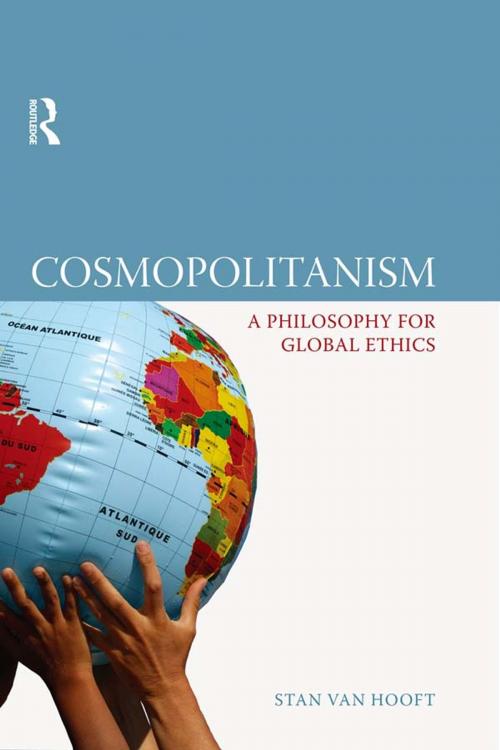| Author: | Stan van Hooft | ISBN: | 9781317492344 |
| Publisher: | Taylor and Francis | Publication: | December 5, 2014 |
| Imprint: | Routledge | Language: | English |
| Author: | Stan van Hooft |
| ISBN: | 9781317492344 |
| Publisher: | Taylor and Francis |
| Publication: | December 5, 2014 |
| Imprint: | Routledge |
| Language: | English |
Cosmopolitanism is a demanding and contentious moral position. It urges us to embrace the whole world into our moral concerns and to apply the standards of impartiality and equity across boundaries of nationality, race, religion or gender in a way that would have been unheard of even fifty years ago. It suggests a range of virtues which the cosmopolitan individual should display: virtues such as tolerance, justice, pity, righteous indignation at injustice, generosity toward the poor and starving, care for the global environment, and the willingness to take responsibility for change on a global scale. This book explains and espouses the values of cosmopolitanism, adjudicates between various forms of cosmopolitanism, and defends it against its critics.Cosmopolitanism has relevance for international distributive justice; peace; human rights; environmental sustainability; protection for minorities, refugees and other oppressed groups; democratic participation; and inter cultural tolerance. The book does not aim to impart factual information about global issues or to offer prescriptions for the solution of global problems. Rather, it highlights the ethical issues inherent in them and identifies the moral obligations that individuals, multinational corporations and governments might have in relation to them.While espousing a cosmopolitan form of global ethics, a liberal form of politics, sustainable and just forms of business practice, and an internationalist approach to global conflict and governance, it seeks to present as many sides of the ethical debates as can be supported by reasonable argument. Discussing the work of Kwame Anthony Appiah, Seyla Benhabib, Martha Nussbaum, Thomas Pogge, John Rawls, Amartya Sen, Henry Shue, Peter Singer and others, this book provides a clear and accessible survey of cosmopolitanism and analyses the reality of the rights and responsibilities that it espouses.
Cosmopolitanism is a demanding and contentious moral position. It urges us to embrace the whole world into our moral concerns and to apply the standards of impartiality and equity across boundaries of nationality, race, religion or gender in a way that would have been unheard of even fifty years ago. It suggests a range of virtues which the cosmopolitan individual should display: virtues such as tolerance, justice, pity, righteous indignation at injustice, generosity toward the poor and starving, care for the global environment, and the willingness to take responsibility for change on a global scale. This book explains and espouses the values of cosmopolitanism, adjudicates between various forms of cosmopolitanism, and defends it against its critics.Cosmopolitanism has relevance for international distributive justice; peace; human rights; environmental sustainability; protection for minorities, refugees and other oppressed groups; democratic participation; and inter cultural tolerance. The book does not aim to impart factual information about global issues or to offer prescriptions for the solution of global problems. Rather, it highlights the ethical issues inherent in them and identifies the moral obligations that individuals, multinational corporations and governments might have in relation to them.While espousing a cosmopolitan form of global ethics, a liberal form of politics, sustainable and just forms of business practice, and an internationalist approach to global conflict and governance, it seeks to present as many sides of the ethical debates as can be supported by reasonable argument. Discussing the work of Kwame Anthony Appiah, Seyla Benhabib, Martha Nussbaum, Thomas Pogge, John Rawls, Amartya Sen, Henry Shue, Peter Singer and others, this book provides a clear and accessible survey of cosmopolitanism and analyses the reality of the rights and responsibilities that it espouses.















